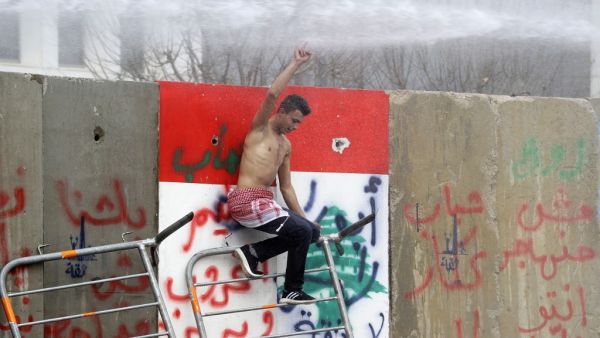A delegation from the International Monetary Fund (IMF) met Lebanese Prime Minister Hassan Diab in Beirut on Thursday to discuss how to tackle the country's spiralling economic crisis.
The Lebanese premier asked the monetary institution for its advice after parliament passed a vote of confidence in his government last week.
Lebanon's debt burden had been among the largest in the world for some time but a liquidity crunch has brought the crisis home, with banks imposing tough restrictions on dollar withdrawals.
The Lebanese pound, which has been pegged to the dollar since 1997, has plummeted on the parallel market, further crippling the import-dependent economy.
The IMF team of experts is expected to hold consultations with various Lebanese officials until Sunday.
Lebanon has not officially requested financial assistance from the IMF but it will need to decide soon what to do with a $1.2 billion debt in Eurobonds that reach maturity on 9 March.
Lebanon's sovereign debt rating slid into junk territory long ago, but investor confidence has fallen further since a wave of protests erupted in October in a major challenge to the political establishment.
"We are in a phase of technical advice. Aid comes in the next phase," Finance Minister Ghazi Wazni said after the first meeting with the IMF team.
The five-member delegation is also due to meet with central bank governor Riad Salameh.
Economists, investors and government officials are divided over what to do with the March Eurobonds, which fell to a record low of 54 cents on Wednesday.
The Association of Banks in Lebanon has called for the bonds to be paid on time in order to salvage some investor confidence and stave off a debt default.
But parliament speaker Nabih Berri, an influential player in a country where political and economic power are mostly held by the same elite, advocated debt restructuring.
Many analysts have argued that paying the bonds next month would only deepen the crisis by putting further strain on foreign currency reserves.
This article has been adapted from its original source.








